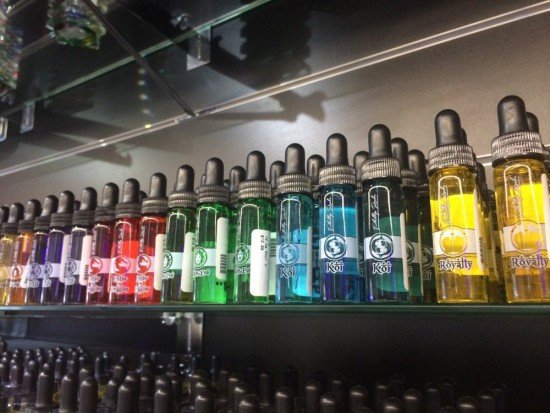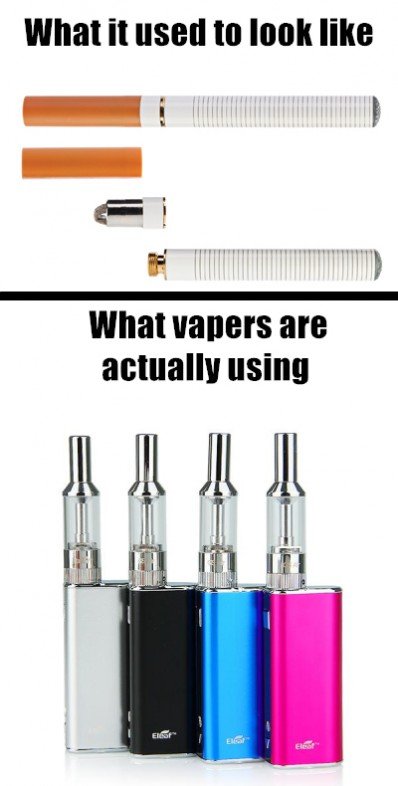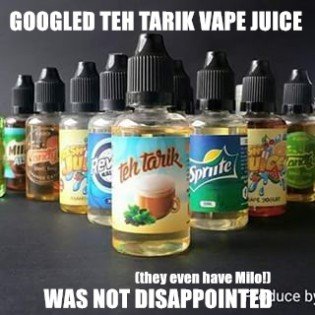The issue on vaping continues into 2016, as more and more states in Malaysia join the bandwagon to ban the sale of vape products, with some even going a further step to ban vaping in the state completely. The move was undoubtedly accelerated thanks to the National Fatwa Council’s declaration on 21 December 2015 that vaping was considered haram, or forbidden, from the shariah (Islamic law) point of view, as well as being financially wasteful and harmful to health.
So, is this really a case of ‘one man’s meat is another man’s poison’? From the looks of it, yes. Even though e-cigarettes have been around since its invention in more than a decade ago, the recent trend of vaping as we know it has only emerged in the last couple of years. The devices used have also changed in appearance, from the cigarette-lookalikes of old to the newfangled ‘vape mods’ that are the craze among its users today. The main thing about these e-cigarettes and vaporizers was that they mimicked the smoke cloud exhaled by traditional tobacco cigarette smokers, but without the harmful effects of secondhand smoke itself. Sort of like vegetarians eating vegetarian chicken or fish.
While it is understandable that some smokers would be keen to try it as a way to quit their smoking habit and save money, the problem that is currently being faced by dissenters and local authorities is that many non-smokers are picking up the habit, which they deem not beneficial to health and a waste of money – which is why it was declared haram. More worryingly, young children and teenagers are also picking up the habit as they think it is ‘cool’ and trendy, in addition to the appeal of literally hundreds, if not thousands, of vape ‘juice’ flavours to choose from, not to mention all the unique local flavours that enterprising young Malaysians have come up with. Teh tarik vape juice, anyone?

Vapers will finally understand how ladies feel when walking into Sephora or Bath & Body Works – the choices are overwhelming (Image from Yelp)
Over the course of a mere few months, in which the issue of allowing, banning or regulating vape products and vaping was hotly debated among lawmakers and netizens alike, the governments of different states in Malaysia have come up with their own policies regarding the issue.
States that have banned the sale and use of vape products:
- Terengganu
- Malacca
States that have banned the sale of vape products:
- Johor
- Kelantan
- Kedah
- Penang – pending federal government directive
States where the sale and use of vape products is OK:
- Kuala Lumpur – no more licences issued
- Putrajaya – regulate sales of vape products
- Selangor – pending decision on January 13
- Negeri Sembilan
- Perak
- Perlis
- Pahang
- Sarawak
- Sabah
*Disclaimer: The details above are accurate as at 6 January 2016.
It must be noted that vaping is not banned, nor the sale of its related products prohibited in Kuala Lumpur, but the Kuala Lumpur City Council (DBKL) will no longer issue business licences to e-cigarette and vape product traders until Putrajaya makes its position on the issue clear. Which basically means that any traders who did manage to secure a licence are pretty darn lucky.
Many of the protests against banning the usage of vape are actually quite convincing. Here are a few valid points to ponder:
- The vaping industry has opened up a new, lucrative business opportunity for youngsters.
- Banning the sale of vape products and e-cigarettes will only serve to push the trade underground (illegal business).
- Vaping can help longtime smokers quit. Anecdotal evidence from longtime smokers point to the fact that the change to vaping has helped them to kick the smoking habit, and consequently resulted in less money wasted and improved health (stamina, breathing, body odour, etc).
- It is only haram for Muslims, but non-Muslim vapers will be affected too.
- If vaping is considered ‘haram’, then the sale of cigarettes should be banned too.
- The general consensus is that usage of e-cigarettes produces less harmful effects than tobacco.
- Vape ‘juice’ (liquids) only contain flavourings and food dye that will not cause addiction.
Of course, there are two sides to every coin, so these are some of the arguments that support banning the sale and/or usage of vape products:
- It is haram (forbidden) to Muslims according to shariah law, and the majority of users and traders of vape products are from the Muslim community.
- There are no (or little) studies done on the topic that prove vaping is a better alternative to conventional smoking.
- Due to widespread availability of ‘original’ (homemade, non-regulated) juices in Malaysia, there is considerable variability between vaporizers and the quality of their liquid ingredients.
- Besides flavouring and food dyes, some vape ‘juices’ may include addictive substances like nicotine and other ingredients that may be harmful to users.
- Teens, and even primary school children, have been found vaping and owning vape devices.
- According to the Sultan of Johor, “This is a question of health and its effects on young people. It has nothing to do with businesses and for sure, it has nothing to do with race.”
Although the smoke exhaled from vaping is said to be non-harmful, unlike secondhand smoke, authorities have decided that it would be prudent to extend no-smoking zones into no-vaping areas. An existing prohibition on cigarette smoking in designated public areas will soon be extended to vaping, the Health Ministry has said. Deputy Health Minister Datuk Seri Dr Hilmi Yahaya was quoted by Kosmo as saying that 21 types of areas were gazetted as non-smoking areas, including hospitals, clinics, government buildings as well as petrol stations. Just as well, because we can’t help but think that babies, small children and elderly folks will be definitely be affected by any kind of smoke, be it harmless or dangerous.
So, what do you think about all this – yay, nay or meh? Keep updated with the latest Malaysian property news and issues on Estate123 Insight!









